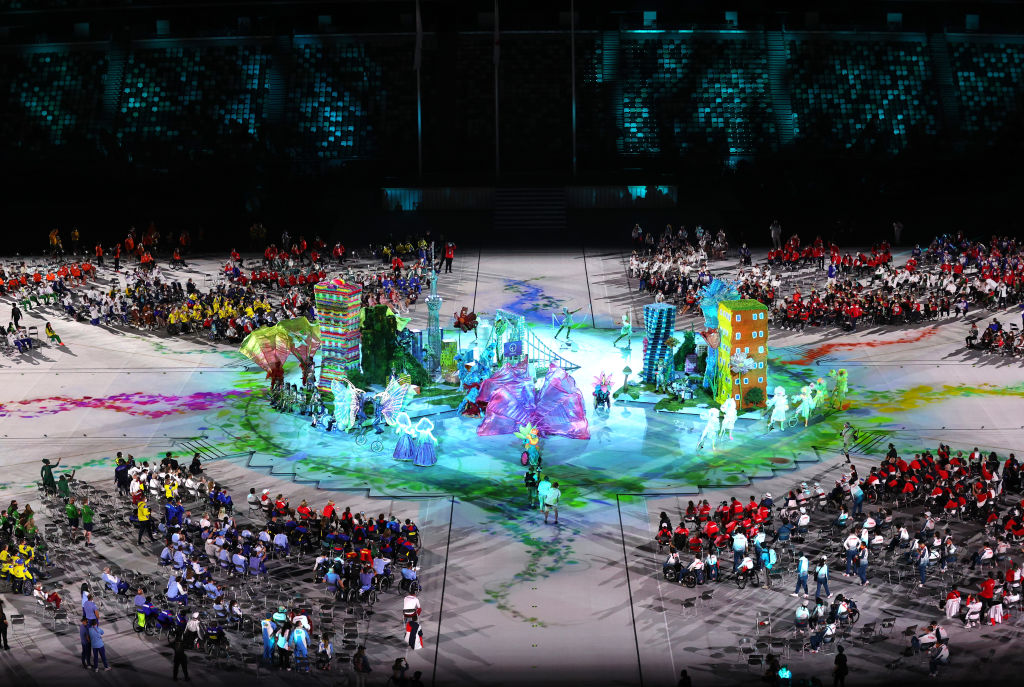
Athletes with a learning disability are largely being excluded at the Paralympics. Out of 22 sports, athletes with a learning disability can compete in just three – this means they only have the chance to win about 4 per cent of the gold medals available. Out of the 209 Team GB disabled athletes who competed in Tokyo, only 13 had a learning disability. This needs to change.
In 2000, most of the Spanish basketball team faked having a learning disability to compete at the Paralympics, after which athletes with a learning disability were banned from competing. They were allowed back at London 2012 – although they can’t take part in many sports.
Many people don’t really understand what a learning disability is, and they might wonder why it affects playing sports.
A lot of the time, learning disabilities are confused with “learning difficulties” like dyslexia. A learning disability is a reduced intellectual ability, which means someone may need support in their everyday life.
The support is different for every person – for me, I need support with travelling to places and understanding complicated information, while someone with a severe or profound learning disability may need full-time care and support with every part of their life. And when you play sports, a learning disability can affect your reaction times and make it harder to co-ordinate your body.
But sports can still be really important to people with a learning disability.
There shouldn’t be any barriers to getting involved. Sport means a lot to me. It has helped me to meet people and gives me a boost and a sense of belonging. But I have faced a lot of barriers along the way, and I promised myself I wouldn’t let other people with a learning disability go through the same challenges.
When I left school I played football for the Arsenal Community team. I said that if I became a coach myself then I would do my best to change attitudes – and that’s why I got into coaching different sports to other people with a disability. I’m also trying to start my own football team because I am so passionate about making sports inclusive of everyone.
In my other job as a co-trainer with Mencap, I deliver workshops to all kinds of organisations working in sport – from universities and organisations like British Rowing and the England and Wales Cricket Board, to football, cricket and rugby teams around the country. I explain what it’s like to have a learning disability to help coaches become more inclusive, and I also have an eye condition so I talk about that. Mencap’s aim is to encourage sports providers to make changes to help people with a learning disability get access to sports, and to not be left out.
I think my role helps to change attitudes and, when I’m talking to people they react really well and say they have learnt a lot. But I know there is still a long way to go. We need to do a lot more to include people with a learning disability in sports, and in the Paralympics.
To raise awareness of the exclusion at the Paralympics, the BBC World Service has begun a new six-part radio programme called The Fake Paralympians. The series is presented by British ex-Paralympic swimmer Dan Pepper, who has a learning disability himself.
I think a series like this is important in raising awareness, and it also helps people to understand what a learning disability actually is – and change their attitudes. For me, this is the biggest thing that needs to change. I don’t think people look beyond the disability at the moment, and they don’t see you as a person. Sometimes they only look at the things you can’t do and not the things you can do, and that is wrong. If there was more representation of learning disability in sports and in the media, then it could make all the difference to attitudes.
Seeing more people with a learning disability competing at a worldwide event like the Paralympics would be a great start. But at the moment there aren’t enough opportunities for that to happen, although this year everyone could take part in Mencap’s Inclusion Games – an activity pack that Mencap launched on its website as the Paralympics took place. It included information about how to play Paralympics sports like Boccia and sitting volleyball at home.
The lack of inclusion at the Paralympics is unfair on the talented athletes with a learning disability who can’t compete – I can’t believe they don’t have the chance to show their ability and what they can do on the sporting field. Including more athletes with a learning disability at the Paralympics would show the world what a learning disability is and how people with a learning disability can achieve their dreams, just like anyone else.
Abdul Hameed is sports co-trainer at the learning disability charity Mencap



